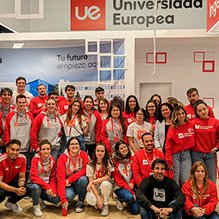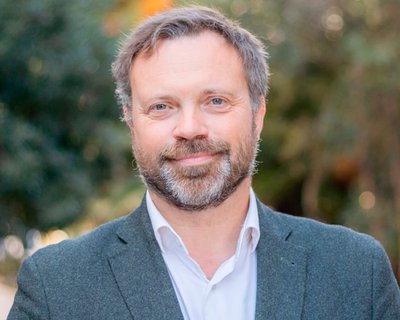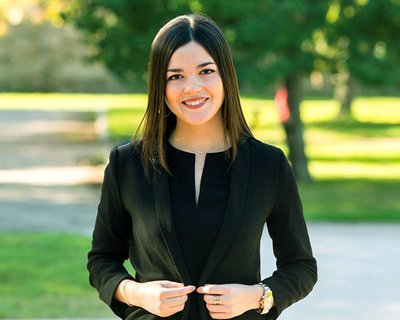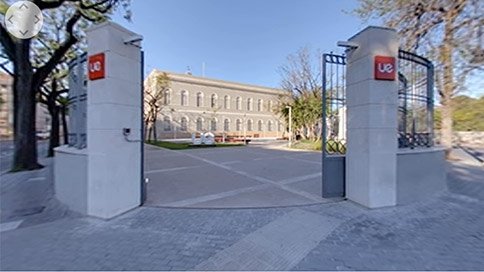-50% Discount on place reservation for 26/27 intake until February 28th!
-50% Discount on place reservation for 26/27 intake until Frebruary 28th!
Degree in International Relations Highlights
The Degree in International Relations at Universidad Europea de Valencia is designed to prepare professionals in diplomacy, geopolitics, international conflict resolution, capable of working in large organisations and institutions around the world. The international relations bachelor degree lasts four years and is made up of 240 ECTS credits. Students will develop skills such as communication, teamwork, and leadership, all through an academic model based on experiential learning.
As an expert in International Relations you will be able to explain the complexity of politics and global interests. You will provide ways and tools to solve conflicts from diplomacy, cooperation, communication and political and legal advocacy.
Official degree issued by Universidad Europea de Valencia
| Campus-based | Classes in English | Valencia | 4 years, 240 ECTS | Start: 14 sep. 2026 | School of Social Sciences and Communication |
91%
Our students find employment in less than 12 months.
55%
You'll live in a diverse environment that is more multicultural than that of other universities.
3.600
UEV has a multitude of educational cooperation agreements with other centres.
Students carry out a practical exercise simulating UN procedures in a debate held on UN premises.
noStudents carry out a practical exercise simulating UN procedures in a debate held on UN premises.
Testimonials

Mobility offer
International mobility is one of the most valuable academic and life experiences we recommend during your university years.
We have agreements with many universities across different continents, so you can choose the one that best fits your academic goals.
Study plan
Study plan structure*
*This degree covers the curricular itinerary of Law 10/2022, of September 6, on the comprehensive guarantee of sexual freedom.
Programa de estudios
PRIMER CURSO
| Materia | ECTS | Tipo | Idioma de impartición |
|---|---|---|---|
| HISTORY AND THEORY OF INTERNATIONAL RELATIONS | 6 | CORE | English (en) |
| CONCEPTS OF INTERNATIONAL RELATIONS: ACTORS AND FACTORS | 6 | COMPULSORY | English (en) |
| COMMUNICATION FOR INTERNATIONAL RELATIONS | 6 | COMPULSORY | English (en) |
| HUMAN, ECONOMIC AND POLITICAL GEOGRAPHY | 6 | CORE | English (en) |
| DOCUMENTING SOURCES | 6 | CORE | English (en) |
| SOCIOLOGICAL RESEARCH TECHNIQUES | 6 | CORE | English (en) |
| FOREIGN POLICY AND DIPLOMACY | 6 | COMPULSORY | English (en) |
| HUMAN RIGHTS AND COOPERATION FOR DEVELOPMENT | 6 | COMPULSORY | English (en) |
| CURRENT AFFAIRS OBSERVATORY | 6 | COMPULSORY | English (en) |
| FOREIGN LANGUAGE C* | 6 | CORE | English (en) |
SEGUNDO CURSO
| Materia | ECTS | Tipo | Idioma de impartición |
|---|---|---|---|
| THEORY OF THE STATE AND COMPARATIVE POLITICAL SYSTEMS | 6 | COMPULSORY | English (en) |
| COMPARATIVE LEGAL SYSTEMS | 6 | CORE | English (en) |
| GLOBAL ECONOMY AND FOREIGN TRADE | 6 | CORE | English (en) |
| CULTURAL DIFFERENCES AND INTERCULTURALITY | 6 | COMPULSORY | English (en) |
| SPANISH FOREIGN POLICY | 6 | COMPULSORY | English (en) |
| MANAGEMENT OF MULTINATIONAL CORPORATIONS | 6 | CORE | English (en) |
| PUBLIC INTERNATIONAL LAW | 6 | CORE | English (en) |
| THE UNITED NATIONS | 6 | COMPULSORY | English (en) |
| THEORY AND ANALYSIS OF INTERNATIONAL CONFLICTS | 6 | COMPULSORY | English (en) |
| ENGLISH | 6 | CORE | English (en) |
TERCER CURSO
| Materia | ECTS | Tipo | Idioma de impartición |
|---|---|---|---|
| DEFENSE AND SECURITY ALLIANCES | 6 | COMPULSORY | English (en) |
| INTERNATIONAL ECONOMIC AND FINANCIAL ORGANIZATIONS | 6 | COMPULSORY | English (en) |
| INTERNATIONAL PUBLIC OPINION | 6 | COMPULSORY | English (en) |
| INTERNATIONAL LEGAL CONFLICTS | 6 | COMPULSORY | English (en) |
| FOREIGN IMAGE AND PUBLIC DIPLOMACY | 6 | COMPULSORY | English (en) |
| DIPLOMATIC AND CONSULAR LAW | 6 | COMPULSORY | English (en) |
| PRESSURE GROUPS | 6 | COMPULSORY | English (en) |
| FOREIGN LANGUAGE C II* | 6 | COMPULSORY | English (en) |
CUARTO CURSO
| Materia | ECTS | Tipo | Idioma de impartición |
|---|---|---|---|
| EXTERNAL ACADEMIC INTERNSHIPS | 9 | EXTERNAL INTERNSHIPS | English (en) |
| DESIGN AND MANAGEMENT OF INTERNATIONAL PROJECTS | 3 | COMPULSORY | English (en) |
| INTERNATIONAL TERRORISM AND ORGANIZED CRIME | 6 | COMPULSORY | English (en) |
| PROFESSIONAL ETHICS IN INTERNATIONAL RELATIONS | 6 | COMPULSORY | English (en) |
| INTERNATIONAL NEGOTIATION WORKSHOP | 6 | COMPULSORY | English (en) |
| ENVIRONMENTAL HAZARDS AND CLIMATIC CHANGE | 6 | COMPULSORY | English (en) |
| FINAL DEGREE PROJECT | 6 | FINAL DEGREE PROJECT | English (en) |
| MIDDLE EAST AND MAGHREB | 6 | ELECTIVE | English (en) |
| GLOBAL GEOPOLITICS | 6 | ELECTIVE | English (en) |
| EU LAW | 6 | ELECTIVE | English (en) |
| EUROPEAN UNION IN THE WORLD | 6 | ELECTIVE | English (en) |
| STATE DEFENSE STRUCTURES | 6 | ELECTIVE | English (en) |
| EMERGING POWERS AND MARKETS | 6 | ELECTIVE | English (en) |
Programme implementation
2013/2014
Number of places for incoming students
80
Internships
Internships are a key component of your training. Acquiring experience after what you have learnt in your degree programme is the best way to enter the employment market. There are two types of internships: curricular—which are included in your study plan—and extracurricular—which you can do on a voluntary basis.
In order to complete curricular internships in companies, you will need to have 50% of the credits approved and to register the subject before starting your internship. These internships are monitored by the company and the internship coordinator, and they are evaluated by midterm and final reports.
If you want to take your work experience to the next level before finishing your university education, you can pursue an extracurricular internship. You can do them in any academic year, but keep in mind that internships are a formative complement to your studies; therefore, the more knowledge you have acquired throughout your studies, the more you will benefit from the internship experience.
Graduation profile
The desirable entry profile for a student wishing to enroll in the International Relations degree should meet the following parameters:
- Interest in political, economic, legal, social and cultural, national and international aspects.
- Interest in foreign languages and facility in learning them.
- Ability to analyze and synthesize current national and international events.
- Interest in the welfare of the international community.
- Interest in history, geography and universal culture.
- Interest in the culture of peoples.
- Skill in the handling of information.
- Ability in human relations.
- Knowledge of general culture.
Professional Internships
Curricular internships are offered in leading companies, NGOs, international organizations or public institutions. Students intern for 225 hours in the final year of the Bachelor’s in International Relations. The goal is to place the student in an educational context in a real working environment that allows them to learn and apply information comprehensively and allows them to engage with the professional world. The establishment in which the student can complete their internship is determined by the Bachelor’s Academic Coordinators, based on the student profile, their academic results and the requirements set out by the establishments themselves. In this way, we can guarantee the success of the internship and ensure students are well prepared for their professional career.
You can carry out two types of internships:
- Mandatory. 225 hours of mandatory internships in companies and institutions. They take place over three or four months in the 3d or 4th academic year, in Spain or abroad.
- Voluntary. From 3rd academic year, unlimited. It is organized in collaboration with the Careers Guidance Office at the Universidad Europea de Valencia.
- Leading companies, NGOs, International Organizations, Public Institutions where internships can be carried out:
- AGR BLAY S.L.
- Alias Allied To Grow sl
- AMSPACEVLC (UNIVERSIDAD POLITECNICA)
- BENNY CITRUS
- CONSULADO RUSIA
- CREACIONES CORDÓN
- Cruz Roja Segovia
- ELIS
- EY ADVISORY ALGERIE
- FORO ADR
- FUNDACIÓN FINNOVA
- Giorgio Armani SpA
- Global Hemisphere
- HOWLANDERS - Vaciar Cache S.L.
- INDUMARSAN
- J. HIDALGOS
- JFCHQ BRUNSSUM -NATO JOINT FORCE COMMAND HEADQUARTERS BRUNSSUM-OTAN
- LEADING MANAGEMENT TECHNOLOGY - LMT GROUP
- MAHLE ELECTRONICS S.L.U.
- Maraver Lora - Martínez Requena Abogados
- MARIA INMACULADA MARTÍNEZ REQUENA
- MAS CONSULTING GROUP
- NH HOTELES ESPAÑA
- NATO Rapid Deployable Corps - Spain Headquarters
- PANTOS LOGISTICS
- POZOWINDS
- REPRESENTACIÓN ESPAÑOLA EN EL CONSEJO EUROPEO
- REX CAPITAL
- Sambeat Soc Coop
- SORMA SpA
- TECNOURBAN
- VALIMEX
Extracurricular internships
Unlimited and at any time.
Employability
Career opportunities
With the International Relations Bachelor Degree, you can focus your career on both the public and private sectors. It is a profile highly sought-after by companies or organizations that have needs related to international diplomacy and internationalization policies and economics.
Public sector
- Diplomacy
- International organisations
- Foreign services such as diplomatic and consular missions, supranational organizations (European Union, Council of Europe, NATO, United Nations, World Trade Organization) and international NGOs (Red Cross, eg.)
- Customs and foreign trade agencies.
Private sector
- Multinational and international companies
- Export-import companies
- Financial and insurance sector
Admissions
Start your future at Universidad Europea
You can become a student at Universidad Europea in three easy steps.
1
Admission exams
Start your admission process by calling +34 961113845 or request information and our advisors will contact you.
2
Place reservation
Once you have been admitted, secure your place by paying the reservation fee.
3
Enrollment
Submit the required documents to formalise your enrollment.
Scholarships and financial aid
We want to help you. If you want to study at Universidad Europea, you will have at your disposal a wide selection of own and official scholarships.
Credit recognition and transfers
You don’t have to stick with something you don’t like. That’s why we’ve designed specific plans for credit recognition and transfers.
Request your online credit recognition review, transfer your academic file and start studying at Universidad Europea.
Profile for prospective students and how to access this degree
According to RD 412/2014, of June 6, which regulates the basic regulations of the admission procedures for undergraduate university studies, they are expanded and detailed as follows:
Those who meet any of the following requirements shall be eligible for admission to official undergraduate university studies at Spanish Universities, under the conditions that for each case are determined in this Royal Decree:
a) Students in possession of the title of Bachiller of the Spanish Educational System or another declared equivalent.
b) Students in possession of the title of European Baccalaureate or of the diploma of International Baccalaureate.
c) Students in possession of titles, diplomas or studies of Baccalaureate or Baccalaureate from educational systems of Member States of the European Union or other States with which the European Union or other States with which the European Union or other States with which the European Union has European Union or other States with which international agreements applicable in this respect have been signed, on a reciprocal basis.
d) Students in possession of titles, diplomas or studies homologated to the title of Baccalaureate of the Spanish Educational System, obtained or carried out in
educational systems of States that are not members of the European Union with which international agreements have not been signed for the recognition of the baccalaureate degree on a reciprocal basis.
of the baccalaureate degree on a reciprocal basis, without prejudice to the provisions of article 4.
e) Students in possession of the official titles of Higher Technician in Vocational Training, Higher Technician in Plastic Arts and Design or Higher Sports Technician belonging to the
Higher Sports Technician belonging to the Spanish Educational System, or of titles, diplomas or studies declared equivalent or homologated to such titles, without prejudice to the
said degrees, without prejudice to the provisions of article 4.
f) Students in possession of titles, diplomas or studies, different from those equivalent to the titles of Baccalaureate, Higher Technician of Vocational Training,
Higher Technician of Plastic Arts and Design, or Higher Sports Technician of the Spanish Educational System, obtained or carried out in a Member State of the Member State of the European Union or in other States with which international agreements applicable in this respect have been subscribed, under reciprocity of reciprocity, when these students fulfill the academic requirements demanded in this Member State to accede to their Universities.
g) Persons over twenty-five years of age who pass the entrance exam established in this Royal Decree.
h) Persons over forty years of age with work or professional experience related to education.
i) Persons over forty-five years of age who pass the entrance examination established in this Royal Decree.
j) Students in possession of an official university degree, Master's degree or equivalent.
k) Students in possession of an official university degree of University Diploma, Technical Architect, Technical Engineer, Graduate, Architect, Engineer, corresponding to the previous university education system or equivalent degree.
l) Students who have completed partial foreign or Spanish university studies, or who having completed foreign university studies have not obtained their homologation in Spain and wish to continue their studies in a Spanish university. In this case, it will be a prerequisite that the corresponding university has recognized at least 30 ECTS credits.
m) Students who were able to access the university according to the Spanish Educational System regulations prior to the Organic Law 8/2013, of December 9, 2013.
8/2013, of December 9.
For those students who access the Degree in International Relations by passing the PAU after the baccalaureate, and according to the experience gathered so far, it will be with the experience gathered so far, it is considered that the ideal entry profile, and therefore advisable, is the one provided by the modality of Humanities and Social Sciences (specifically in the Humanities option) of the current baccalaureate.
The procedure established at the University for access through this pathway will be as follows:
- The student applies to the Admissions department for access to the degree by accompanying the application with a portfolio.
- The application is sent to the degree director who, verifying that the evidence presented in the portfolio is in accordance with the degree requested, will proceed to hold an interview with the student in order to evaluate competencies that require direct observation and that are related to the academic success in the degree in which the the degree to which access is requested, as well as to detect specific training needs.
- The University may establish a specific test to ensure that the student meets the minimum competencies to be able to pursue the degree.
- All students admitted after the selection procedure receive a letter from the University, indicating the admission to the Degree for which they have taken and passed the admission tests.
Open days
We know that now is an important moment to progress in your professional future. That is why we open our virtual doors to you and invite you to join us. We want you to meet the director of your programme and solve all possible doubts you have. You’ll also discover what makes our students and our online methodology unique.
07 March

Come and see the campus
Get to know the facilities and discover why Universidad Europea is made for you.
Faculty
The faculty on this degree has 79% of doctors.
Professors list
Among the faculty members of the Global Bachelor’s Degree in International Relations, the following professors stand out for their academic and professional background.
- PhD. Frédéric Mertens de Wilmars
He is the Coordinator of the Bachelor’s Degree in International Relations, SDG Director of UEV, and Senior Lecturer in Constitutional Law and Political Sc. He is Accredited Doctor in Law from University of Valencia (Spain) and graduated from Catholic University of Louvain (Belgium). He holds a DEA in European Law from the University of Aix-Marseille (France). He is a guest professor at numerous foreign and Spanish universities and collaborates as an expert with international institutions such as European Commission, Council of Europe and United Nations agencies. His research and publications focus on European Governance, Human Rights and Gender Equality. One research sexennial. - PhD. Javier Muñoz de Prat
PhD in Economics from the Catholic University of Valencia, Degree in Business Law (University of Valencia), MBA (Instituto de la Empresa -IE-) and Master in International Trade (ADEIT and Valencia Chamber of Commerce). He collaborates as a consultant in the internationalisation of companies, especially in the Middle East North Africa (MENA) area. His main areas of research are International Trade and Internationalisation. Head of Entrepreneurship, Director of MBA and Coordinator of the Business Managment-Global and Marketing Degrees and at the European University of Valencia. - PhD. Fátima Gomez
PhD in Sociology (UPV/EHU) and Postgraduate in Human Resources Management from INSIDE. Degree in Political Science and Sociology from the University of Deusto. She has been a lecturer at the UEM since 2008. She is currently a lecturer in Sociology at the Faculty of Social Sciences of the UEV. Accredited by ACAP in all its figures (2010). She has carried out teaching and research stays at the Federal University of Bahia (Brazil), at the University Paris7 (Paris) and at ESCE (Paris). She has several publications in the area of international migration and diversity management in business. She has also published articles related to educational innovation, specifically on PBL and CBL (Challenge by learning). learning). His research interests focus on international migration, diversity management and social innovation. - PhD. Tomás Kruiper
Thomas Kruiper is a professor of International Relations at Universidad Europea (Valencia) and Instituto de Empresa (Madrid). He holds an MSc in International Relations from the University of Amsterdam (2009) and a PhD in Law, Criminology, and Political Science from the University of Valencia (2019). His fields of expertise include peace and conflict studies, security studies, international development, and political theory. Besides his academic activities he also works as a monitoring and evaluation consultant in Sub-Saharan Africa. - PhD. Alfredo Escardino
Alfredo Escardino holds a PhD in Law from the University of Valencia. He also holds a master degree from the Institute of European Studies (Free University of Brussels) and another one from the College of Europe in Bruges. At the beginning of his professional career he worked as legal adviser, while running the EU and International Law section of the Valencia Bar Association. In 2002, he returned to Brussels as a civil servant of the European Commission. Currently, he teaches EU Law and International Relations at the Universidad Europea de Valencia - PhD. Lupe Bohorques
Degree in Law, Master in Commercial and Corporate Law, PhD in Communication from the European University of Madrid. Teacher of Ethics and Constitutional Law and researcher in several research projects in the field of Social Responsibility and the Sustainable Development Goals. In the academic year 2018-2019 received the special mention for the best teaching work in the area of Social Sciences. Good l track record of publication, both creative and academic writing with numerous articles and books published. - PhD. Carolina Punset Bannel
She is a Lecturer in International Relations at Universidad Europea de Valencia. She holds a PhD in Business, Economy, and Society from the University of Alicante and a Law degree from the Autonomous University of Madrid. She has extensive experience in both the public and private sectors, having served as a Member of the European Parliament and as Secretary for the European Union and External Relations for the Generalitat Valenciana. Her research and publications focus on European environmental policy, sustainable development, and energy transition. Fluent in French, English, and Valencian. - Enrique Manglano
He studied High Military Studies at the General Military Academy of Zaragoza, equivalent to a Bachelor's Degree. He holds a Master's degree in Security and Defence from the “Universidad Complutense de Madrid” and the “Centro Superior de Estudios de la Defensa”. He holds a Master's degree in International Strategic-Military Studies and International Relations from the LUISS University of Rome and the Public University of Milan. He is currently working on his doctoral thesis at the University of Valencia in the field of International Law. His professional experience has been developed in the fields of: Command of military units and human resources management; Operational and logistical planning; Representation of Spain in international and bilateral environments; National, NATO, United Nations and European Union Operative missions.
Title coordination table
CV of the degree’s faculty
Frequently Asked Questions
What do you do with an international relations degree?
Once you complete your degree in International Relations, you’ll have many options in different sectors to launch your career. Much will depend on your interests that you may have developed over the course of your programme.
This is just an example of the careers that our students do into after they complete their International Relations bachelor's degree in Valencia:
- Diplomacy
- International organisations
- Foreign services such as diplomatic and consular missions
- Customs and foreign trade agencies
- Multinational and international companies
- Export-import companies
- Financial and insurance sector
How many years does international relations take?
The degree in International Relations at Universidad Europea in Valencia takes four years to complete and includes 240 ECTS. Throughout your programme you will learn from a leading faculty made up of experts in their areas of knowledge, who will guide you while you work on real cases studies thanks to our academic model based on experiential learning.
In addition, you’ll have the chance to complete internships and work placements, as well as study exchange programmes at other leading institutions around the world in your 3rd and 4th years.
Where can I study international relations in Spain?
If you choose to study a degree in international relations, at Universidad Europea we offer the programme at our campus in Valencia and in Madrid.
Wherever you choose to study, you will receive top education thanks to our leading faculty and benefit from internship, work placement, and study abroad opportunities.
What subjects do I need to study international relations?
Because international relations is a broad field of study, there are no specific requirements to have studied certain subjects before applying to the degree. Obviously, having an interest or some experience of humanities and social sciences will help, but it is not essential.
To apply to study the international relations degree at Universidad Europea in Valencia, you will need to follow the criteria laid out in the Admissions section.





